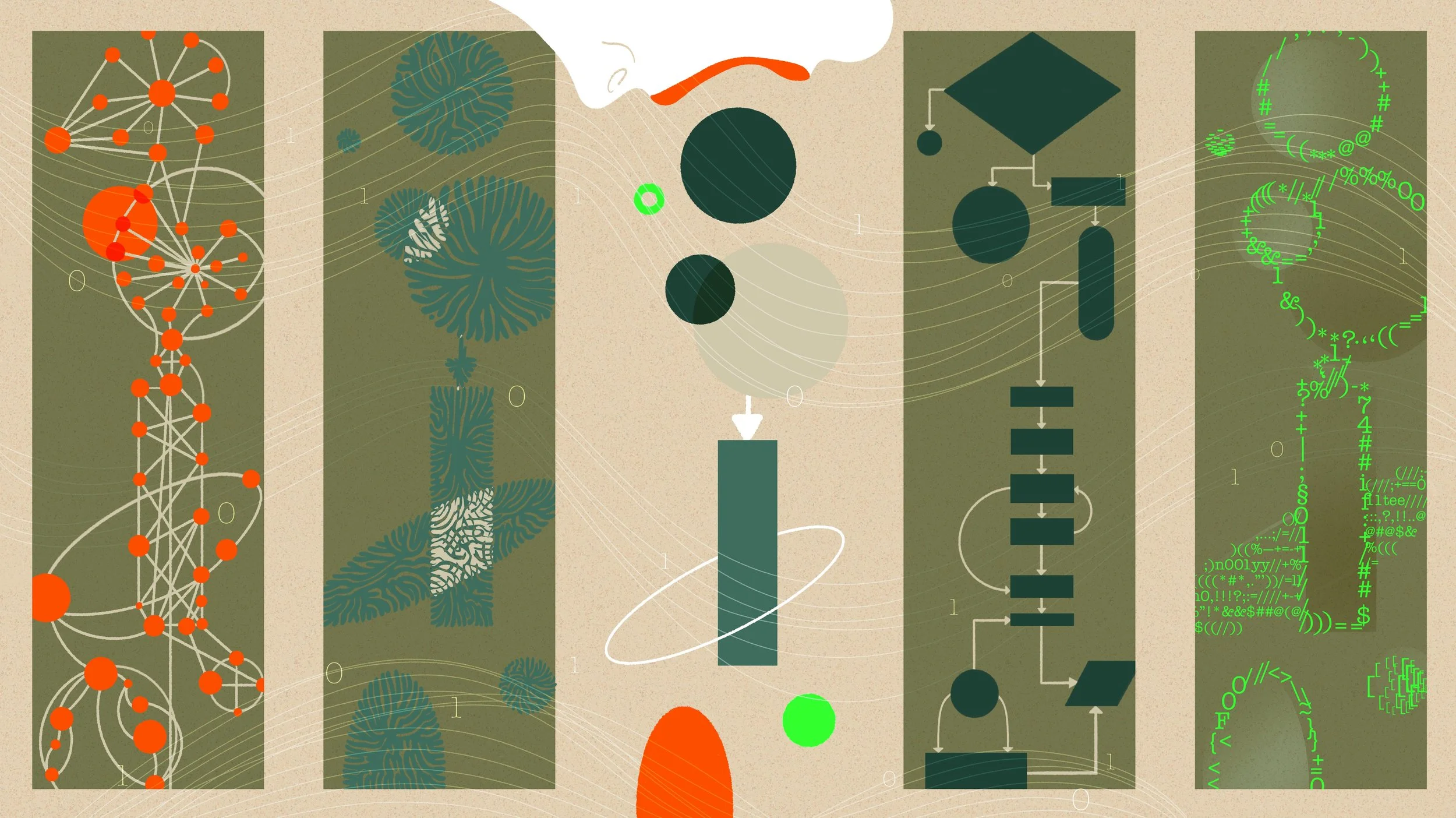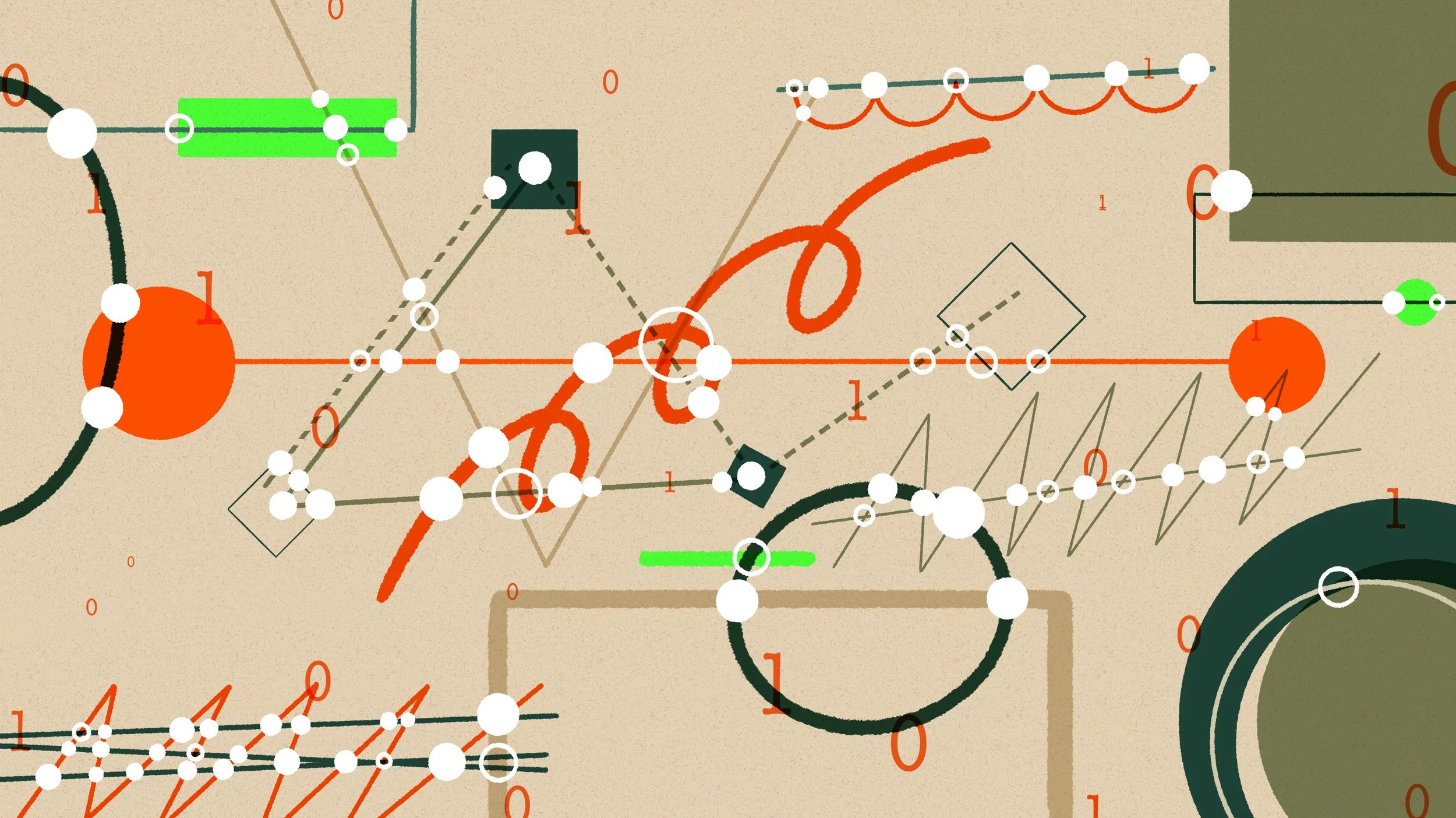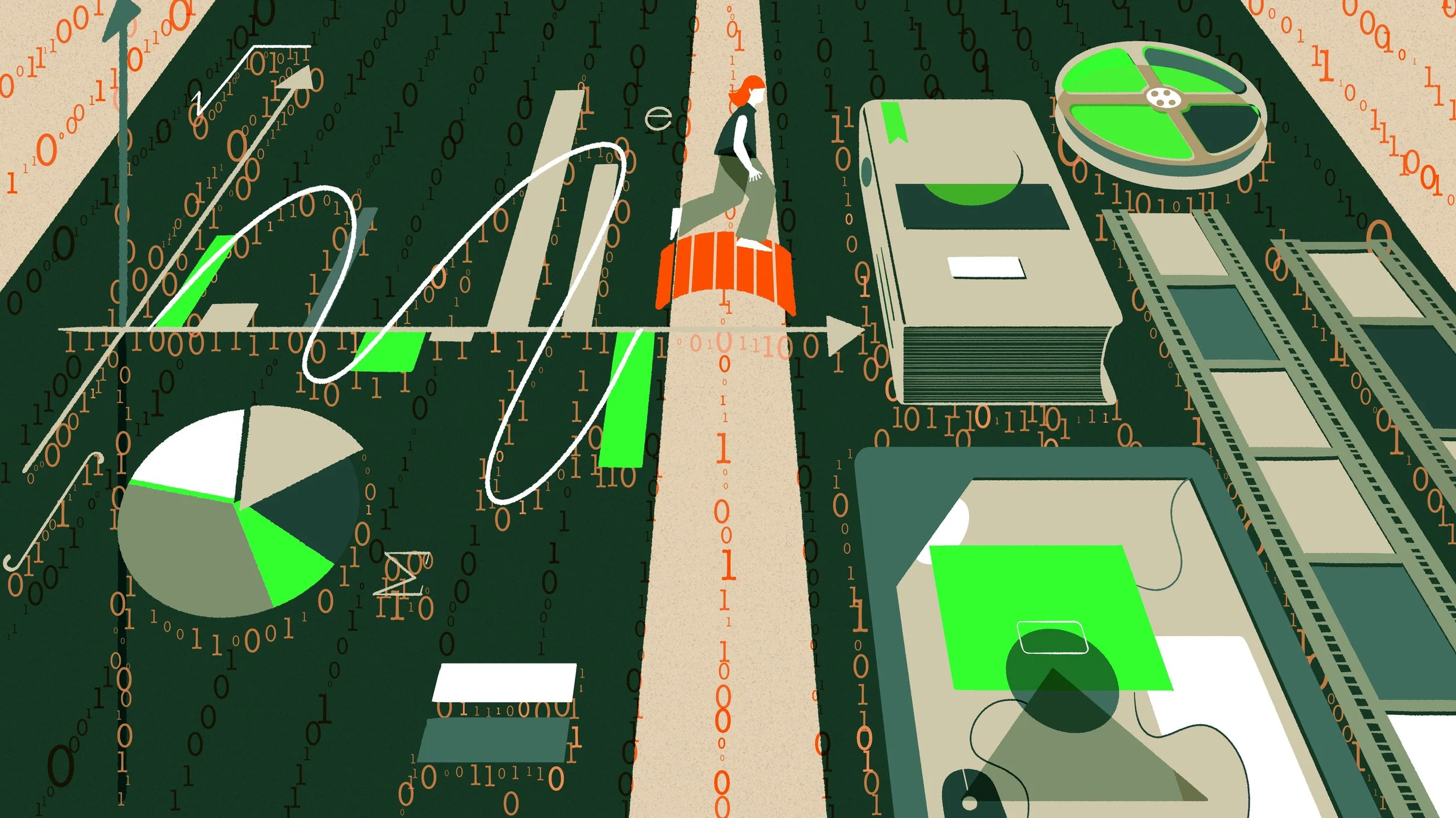Doing AI Differently
An International Initiative Integrating Humanities into the Core of AI Development
Yutong Liu & Kingston School of Art / Better Images of AI / Talking to AI 2.0 / CC-BY 4.0
About: Doing AI Differently
The Doing AI Differently initiative challenges traditional approaches to AI development by positioning humanities perspectives as integral—rather than supplemental—to technical innovation.
The initiative will build a community of scholars from diverse disciplinary backgrounds, with a special focus on bringing humanities and arts contributions further up the AI development pipeline, to the fundamental design of the technology.
We identify a foundational gap: AI systems increasingly produce and act upon cultural outputs – language, images, narratives – yet lack frameworks for interpreting the cultural content they generate and encounter.
The core innovations we envision
Interpretive technologies: AI systems designed to respond to how meaning varies across contexts, and represent multiple perspectives while maintaining computational tractability.
Alternative architectures for AI: Expanding the AI design space beyond current homogeneous approaches through diverse reasoning paradigms grounded in heterogeneous cognitive, cultural, and planetary processes.
Human-AI ensembles: Developing frameworks for sophisticated, collaborative human-AI systems that strengthen our collective intelligence and enhance rather than replace human capabilities in complex decision-making.
The initiative’s objectives include:
1. Developing pilots demonstrating humanities-driven technical advances in AI.
2. Fostering interdisciplinary partnerships through targeted funding mechanisms.
3. Creating pathways and scalable models for humanities scholars to participate in large-scale AI projects.
Potential Benefits:
New paradigms for complex, context-dependent tasks in AI research
Enhanced AI tools for deep contextual analysis across disciplines
AI systems better aligned with societal values and ethical considerations
The Doing AI Differently initiative is led by The Alan Turing Institute, University of Edinburgh and the UK’s Arts & Humanities Research Council (AHRC-UKRI), in collaboration with international partners.
Funding Opportunity
Artificial Intelligence Humanities Sandpits: UK, Canada and US
The UK's Arts & Humanities Research Council and Canada's Social Sciences and Humanities Research Council (SSHRC) announce a humanities-led, interdisciplinary research sandpit and funding call putting humanities insights and methodologies at the heart of artificial intelligence design.
A sandpit is a facilitated workshop process through which new project teams and research propositions will be co-developed and funded. This funding opportunity will be open to researchers based in the UK, Canada, and the US. £1M will fund four projects. Plus travel and subsistence covered by AHRC and SSHRC.
Directed by Professor Drew Hemment, and Delivered in partnership with the Alan Turing Institute and University of Edinburgh.
Further information: Pre-announcement: artificial intelligence humanities sandpits: Canada, UK and US – UKRI
Doing AI Differently White Paper
Rethinking the foundations of AI via the humanities
The Doing AI Differently white paper presents a comprehensive research agenda co-authored by 50+ international scholars for integrating humanities perspectives into the foundations of AI development. This landmark document outlines five strategic workstreams and concrete implementation pathways to address critical challenges facing current AI systems. Accompanying the white paper are a policy note with strategic recommendations and a methodology report documenting the collaborative journey.
Available here www.turing.ac.uk/news/publications/doing-ai-differently
March 2025 Workshop: Bringing the Vision to Life
Leading voices from academia, industry, government, and the arts converge
Our workshop at the Royal Academy of Engineering in London brought together experts from sixty-two organisations to explore how humanities perspectives can transform AI development, generating strong consensus around our research agenda and launching collaborative work.
The Urgent Need for this Work
The rapid advancement of artificial intelligence is driving an evolving consensus that insights from the humanities are more crucial than ever for understanding and shaping the future of AI. While much excellent scholarship has been done at this intersection, the new initiative responds to the need for the humanities not just to contribute to post-hoc analyses of AI outputs or provide novel data sets—but to help shape fundamental aspects of the technology. This integration is not merely beneficial but essential for addressing critical challenges in AI that cannot be solved through technical approaches alone.
A significant driver for this need (though by no means the only one) is the rise of large language models, marking what we describe as a qualitative turn in AI. For most of its history, AI was a primarily quantitative discipline. Its main outputs and interfaces took the form of numbers. That is no longer true: they now take the form of texts, more akin to the documents generated and studied by humanists than equations devised by mathematicians and engineers. Contemporary AI is now qualitative in a way it was not before. And so it is crucial that qualitative disciplines make fundamental contributions to the way this technology is developed and designed.
A key contention is that qualitative disciplines can help contribute to solving one of the flagship problems in contemporary AI: homogeneity. The vast majority of contemporary AI models are based on a very small set of basic architectural designs (specifically, some combination of deep neural networks and reinforcement learning). This places significant limitations on the kind of outcomes and experience AI models can support—as well as the populations of people for whom they are designed to work.
There is furthermore a homogeneity of implementation as well. Current development is focused on single-user, general-purpose AI. There is a widespread framework of human-AI interchangeability: the tacit assumption is that if an AI agent is introduced to a system, a human agent must be removed. Ultimately, we view the various insights and perspectives offered by the humanities—including critique, creativity, and interpretation—as central to addressing the question: How do we create AI that enhances, rather than replaces, human capabilities?
Transformative Shifts in AI: Challenges and Opportunities
The current wave of AI development presents both unprecedented opportunities and complex challenges. The aim of our initiative is to integrate humanities perspectives into the very foundation of AI’s technological infrastructure. We identify three primary challenges which, if addressed constructively, present significant opportunities in the societal impact of AI development.
The Qualitative Turn
The field of AI has undergone a qualitative turn. Early AI systems primarily dealt with quantitative data, producing numerical outputs, and were best understood by the mathematical logic governing these systems. By contrast, modern AI generates outputs—text, images, and even code—which resemble human cultural artefacts. This shift necessitates a new set of skills for analyzing and interpreting these outputs, skills traditionally cultivated within the humanities.
The Homogenization Problem
There is notable homogeneity among the key contemporary AI’s foundation models. When a few dominant models underpin the AI ecosystem, any biases or limitations within those models are amplified and propagated across countless applications. Likewise, certain kinds of architectures support some possible applications and outcomes while excluding others. This can lead to the reinforcement of existing social inequalities and the exclusion of diverse cultural perspectives. There is a long history of feminist, ecological, and indigenous critiques of the limitations of traditional computational frameworks. Integrating these critical perspectives into AI development is crucial for creating systems that are truly inclusive and equitable.
The Transformation of Human Cognition and Capabilities
As people increasingly collaborate with AI systems, the nature of human thought itself is likely to be transformed. AI is not merely a tool; it is a partner in our cognitive processes, shaping how we access information, make decisions, and even understand ourselves. This co-evolution of human and artificial intelligence presents both possibilities and challenges. The humanities are essential for navigating this uncharted territory. We must develop frameworks for understanding how AI is changing human cognition and design sociotechnical systems that enhance, rather than diminish, our uniquely human capabilities.
The Doing AI Differently initiative is led by The Alan Turing Institute, University of Edinburgh and the UK’s Arts & Humanities Research Council (AHRC-UKRI), in collaboration with international partners.
Sustainability Mission
The Alan Turing Institute
The New Real
University of Edinburgh and The Alan Turing Institute













